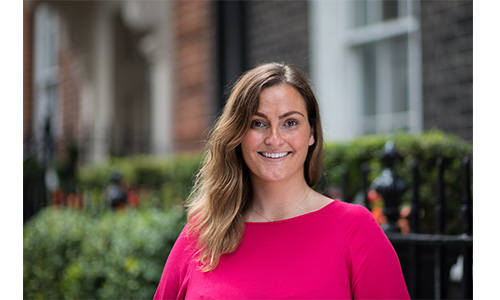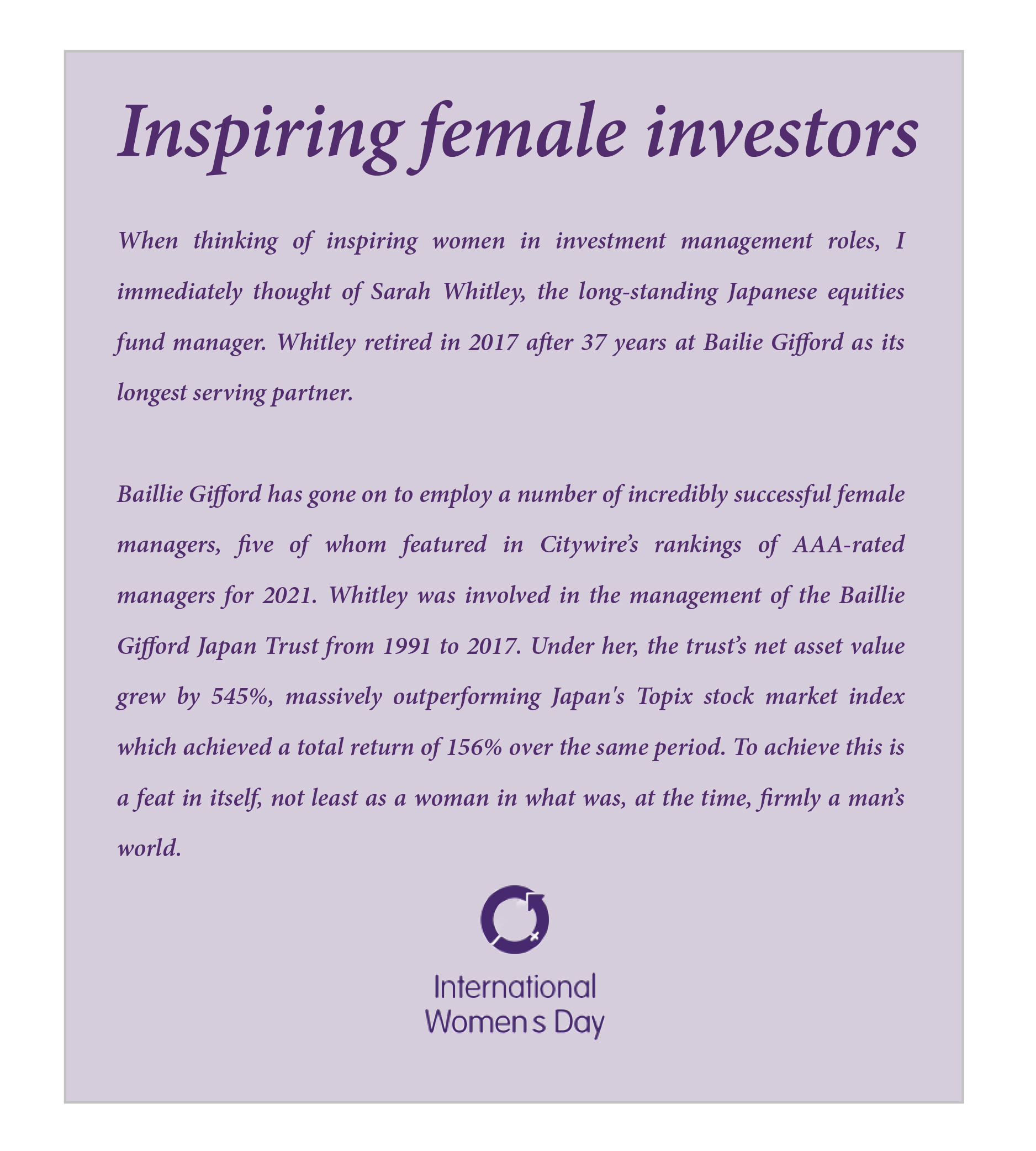Much of the focus in writing about women and money is on what they need to do but here we share the evidence that many women are already successfully managing their finances.
Frequently in the media we see stories about how women need to be encouraged to invest more, how they are under-represented in investment management and how they need to do more to make the most of their wealth.
While statistically there may be some evidence behind these statements, in my experience, it is uninspiring to people of all genders to be told what they are doing wrong or where they are lacking.
So, for this year’s International Women’s Day, I wanted to share examples of what women are great at doing when it comes to investment, how some women have been blazing a trail in investment management for decades and how many female clients are doing exactly what they should be to strengthen their financial position.
Personally, I have worked in finance for 13 years. I joined Church House Investment Management seven years ago and as a relationship manager, I find I bring many strengths to my interactions with clients – male and female.
Overall, at Church House, 46% of our private client base are male and 54% female – a breakdown that might surprise those calling for greater female participation in investing. The split of my clients is 47.5% male and 52.5% female.
Building trust
My first priority is always to listen – I don’t assume I know the best solution for somebody merely because I have worked with someone of a similar age, or background, facing a similar situation in the past.
Every individual’s relationship with money is different, and the factors influencing their decisions are unique too. In initial meetings with a client or potential client, I do my best to understand as much about their life as possible – not solely their financial position and motivations – as having a broader knowledge of their circumstances helps me put their investment objectives in context.
For example, if a client has their children’s upcoming school or university fees to pay, this can help explain why they are more averse to holding their money in anything but cash. In such a scenario, it is my role to explain to them the full ramifications of sitting in cash during an inflationary period, and why that might not end up giving them the best result in terms of funding their children’s education in the future. But ultimately, I must understand and respect their concerns.
Carefully does it
In my experience, female clients are generally more careful when deciding which wealth manager to work with. They are more likely to meet with several different companies to get a sense of who they feel most at ease with. For this reason, it is vital to win trust and demonstrate empathy from the outset.
Women will often be described as more cautious or risk averse than men, but I think the term ‘risk aware’ is more accurate. This can lead to better longer-term outcomes, as female investors – both at the investment manager and individual client level – can be less willing to take ‘punts’ and (according to surveys I’ve read in the past) are more likely to buy and hold when they do invest.
Over time this results in fewer transaction costs, which can soon ramp up if an investor switches in and out of investments frequently. Additionally, ‘time in the markets’ has been repeatedly shown to deliver more consistent outcomes than trying to ‘time the markets’, so selecting an investment strategy they are happy with and sticking with it is not a negative trait of women.
Quietly confident
This patience over impulse is often evident in the way women invest too. Rather than arriving at a decision and then jumping to act, I will typically see women take a few days or weeks to think about their next steps. This is something I actively encourage, as I would rather a client felt 100% comfortable in her actions. In my view, it is positive to be patient not impulsive; positive to be risk aware rather than risk dismissive; and positive to make thoughtful decisions and not rush into them.
For men, we typically see more of a focus on fees and performance. Then, once they are assured on that front, they are more inclined to make on-the-spot decisions.
Another common difference we see is the practice of drip feeding/averaging in, which is embraced more by women. This can help take the emotion out of making an investment, compared with investing a lump sum all in one go.
The next generation of female investors
As a new generation of female investors engages with Church House, we are starting to see changing dynamics.
Typically, our female clients over 50 have taken fewer decisions regarding the household finances and left a lot of investment decisions to their partners. In these situations, it can come as quite a shock to them if an unexpected event such as death or divorce suddenly puts them in the hot seat when it comes to their investments.
This is what encouraged us to start hosting “Wealth is precious” seminars for women to attend with a friend or family member. We found uptake rose significantly when these women felt they were in it together and they didn’t have to go alone – perhaps demonstrating a less individualistic streak than male investors.
Women in their 30s and 40s, by comparison, seem to be taking the financial bull by the horns. Often, we meet them alongside their other half and, as they are both working, they both have pensions and are saving significantly for their family’s future.
This level of involvement is exactly what we like to see, and we strive to create an environment that fosters such collaboration and inclusivity. If we can see this much change in the span of one generation (fewer than 20 years), then we imagine our client list could look very different in another 20 years. We look forward to working with the female investors of the future as much as we enjoy working with those we serve today, whether they are cautious, confident, or even somewhere in between.
Important Information
The contents of this article are for information purposes only and do not constitute advice or a personal recommendation. Investors are advised to seek professional advice before entering into any investment decisions. Please also note the value of investments and the income you get from them may fall as well as rise and there is no certainty that you will get back the amount of your original investment. You should also be aware that past performance may not be a reliable guide to future performance.
How would you like to share this?


